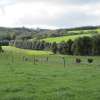
TFPA: Tasmanian Freight Equalisation Scheme needs a ground-up review
Posted 21 November 2024
Media Release: Tasmanian Forest Products Association. A scheme to help alleviate the burden of sea freight for Tasmanian businesses should have a
ground-up review and be indexed, according to the Tasmanian Forest Products Association (TFPA).
Meeting in Hobart on 13 November 2024, the Senate Select Committee on the Tasmanian Freight Equalisation Scheme (TFES) was told the scheme is out-of-date, in need of administrative changes and should be indexed to ensure it remains fit for purpose.
The TFES assists Tasmanian businesses to be more competitive when exporting goods to the mainland, by offsetting the costs of shipping across Bass Strait.
Speaking to the inquiry, TFPA Chief Executive Officer, Nick Steel, said the scheme was essential to keep all exporting Tasmanian businesses competitive.
“A recent survey of our members found that the majority of them use the scheme in one way or another - whether that’s for processed timber, trusses, veneer, engineered wood products or sustainably harvested logs.
“With over $320 million in exports to the mainland, and over $55 million in international trade facilitated through the system it’s essential for our industry,” Mr Steel said.
“These figures are only for the sustainable forest industry. The scheme is essential for all businesses that ship across Bass Strait.”
Mr Steel said there are several issues with the TFES as it currently operates. “Our members have told us the system is old, out-of-date, and relies on manual bookkeeping
methods. They say its lack of indexation actually means businesses are worse off now than before the scheme was introduced.
“And they say the scheme hasn’t kept up with increasing shipping costs - which are now much more per kilometre, per kilogram than road or rail freight – further disadvantaging Tasmanian businesses against their mainland counterparts."
Mr Steel said it’s important to note that the scheme’s objective was always to “alleviate”, but not fully “equalise” the freight cost disadvantage incurred by Tasmanian businesses who move freight between Tasmania and the mainland by sea.
“Shipping goods to and from Tasmania has a unique set of challenges, both logistically and economically,” Mr Steel said.
“The need to transfer goods from road or rail to ship and then back to road or rail is an impediment to trade no other state is faced with. This disadvantage was one of the reasons for TFES was originally introduced.
“Despite extensive shipping cost rises over recent years, the scheme has not been indexed against the rise in shipping costs, which has resulted in a perverse outcome where mainland businesses trade is at a distinct advantage over TFES supported Tasmanian businesses – exactly the purpose of the scheme’s original introduction.”
As well as hearing from the TFPA, the committee heard from a range of industry bodies, including Fruit Growers Tasmania, Wine Tasmania, the Tasmanian Chamber of Commerce and Industry (TCCI) and TFPA member Norske Skog Boyer.
Media contact: David Bauche, Media and Public Relations Manager, 0491 205 627, david.bauche@tfpa.com.au
Share this Article
Latest Articles
-

17 September 2025
Celebrating excellence at the Tasmanian Timber Awards
-

17 September 2025
Forest Practices Authority Research Update Day
-

13 August 2025
Have you seen our Stems for CO2 Project signage on the Midlands Highway?
Archives
- ActivAcre hits milestone, calls for more farmers to get on board
- Napier's leading the way in sustainable forestry and carbon-neutral farming
- Sound science needed to assess carbon impacts of timber harvesting
- Newly appointed TFFPN Board of Directors
- Graduate Certificate of Forestry Scholarship
- Forestry Australia Mentoring Program 2025
- Forest Industry Roundtable planning for the long term
- Eagle Management Constraint Period extended
- Successful private native forest management celebrated
- $15 million investment in new ship loader to boost Bell Bay's forestry exports
- Standing with Tasmania's forestry industry: buy local
- TFPA: Tasmanian Freight Equalisation Scheme needs a ground-up review
- AFCA Gala Dinner celebrates industry excellence
- Fire permits now required Statewide
- Forest leaders hone skills in sustainable native regrowth management
- Tasmanian forests and the carbon market: Barriers and opportunities
- Spring is the time for fuel reduction burning
- Primed for Growth: A situation analysis of the Tasmanian Forest and Wood Products Sector
- Audit requirements cut for low-risk plantation projects
- Guidance and support for landowners after damaging winds
- Forestry Australia welcomes further definition of active forest management
- Farm & Forest Mapper Tool highlighted at Rural Youth Tasmania's Young Farmer of the Year competition
- Senate Select Committee inquiry into the Tasmanian Freight Equalisation Scheme
- Timberlink announces new wood composite products brand
- Newly developed protocol a vital tool for safeguarding forestry industry
- Red Hot Tips: Fire management for Tassie farmers
- Bioenergy: Fuelling industries with trees
- Harvesting trees: What you need to know
- Shelterbelts: How are they contributing to farm systems?
- Infill plantings and remnant vegetation: Why biodiversity depends on a thriving understory
- Plantation planning: The key to a successful plantation
- Exciting interactive forestry knowledge hub launched
- $450,000 farm forestry grant recipients revealed



